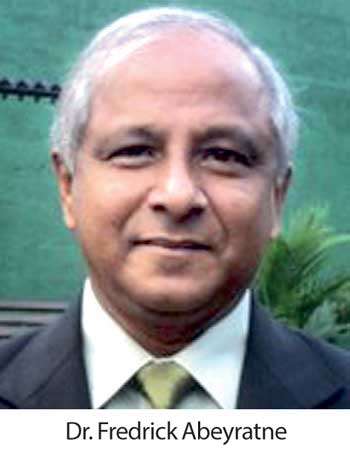Reply To:
Name - Reply Comment
 By Nishel Fernando
By Nishel Fernando
The poor coordination of agricultural policies among government agencies, disharmony between agricultural and trade policies and the lack of congruence between agricultural and other national policies and goals, have become major roadblocks to uplift the general living standards of Sri Lanka’s farming community.
Addressing a joint seminar themed ‘Have National Agricultural Policies Produced Desired Results?’ organised by the Organisation of Professional Associations of Sri Lanka and Sri Lanka Organisation of Agricultural Professionals, a former head of Poverty and Governance Unit of UNDP, Dr. Fredrick Abeyratne asserted that difficulties in coordination has brought undesirable outcomes, particularly to farmers, while the government policies continue to fail at the implementation level.
He highlighted that Sri Lanka has 17 ministries responsible for the country’s agriculture sector while several countries in the Asian region such as Malaysia have only one ministry. In addition, the provincial councils also have their own agricultural policies, which are often not in harmony with national policies.
Dr. Abeyratne identified this as one of the main reasons for poor coordination as these ministries have their own polices and goals, which are not in congruence with each other. “There seems to be a negative correlation between number of Cabinet ministers and the level of development,” he quipped.
As a developed country, Japan only has 20 ministries while Malaysia as an upper middle-income country has only 14 ministries.
Dr. Abeyratne noted that the poor coordination has led to limitations in productivity, efficiency and finally the general living standards of the farming community as well as the consumers at large.
He said that as the policies of the Agriculture Ministry and Primary Industries Ministry are being drafted currently, an inter-ministerial coordination mechanism is also being discussed to enhance the coordination between the two ministries.
“To support this initiative, we suggest the operation room of the Department Of Project Monitoring And Management, which manages the integrated national information system, to be linked to the proposed national agriculture information system, which will manage information in support of policy formulation.
I believe these two information systems should be integrated, so there will be more coordination, so the decisions can be taken in a proper manner,” he said.
Further, Dr. Abeyratne revealed that an online software system is also currently being considered to enhance the inter-governmental coordination under the World Bank’s agriculture modernisation programme.
“In Afghanistan, even though they have a small Cabinet, they also face coordination problems. Hence they have come up with some good proposals based on IT. They have proposed to establish an online software system with multiple entries from different ministries. They are trying to coordinate using the internet.
In addition, they have established a regulatory framework to promote inter-ministerial coordination. So, this is something we can also learn from, in fact we are going to propose something similar to this,” he stressed.
Dr. Abeyratne also suggested to givemore teeth the National Economic Council (NEC) and Cabinet sub committees such as the Cabinet Sub-Committee on Cost of Living to enhance inter-governmental coordination and to improve coordination between agricultural and trade policies.
Commenting on deficiencies of the Cabinet Subcommittee on Cost of Living, he said: “The decisions taken at the Cabinet the sub-committee level are overruled by higher authorities. We believe that decisions made at Cabinet sub-committee level has to be binding.
“Also, tax rates are very ad-hoc and they are given at odd times. They should be based on certain estimates of tax rate elasticity, so that we can expand the tax base on one hand while increasing the tax revenue to the government. It’s a good platform which needs to be strengthened.”
Dr. Abeyratne acknowledges that NEC chaired by President Maithripala Sirisena is a good platform where coordination could take place at the highest level.
However, he noted that several improvements are required to be made in order to transform the NEC to an effective coordination mechanism by evaluating the structure of NEC giving it more teeth.
He also drew attention to the lack of access to market information by farmers.
Appropriate use of agrochemicals can reduce fertiliser use by 25-30%: expert
Sri Lanka would be able to reduce the usage of agrochemicals by 25-30 percent over the next three to four years, bringing savings to State coffers, under the government’s programme to minimize the application of agrochemicals and pesticides, an industry expert said.
“Savings can be very substantial, particularly fertiliser usage can be cut down by 25-30 percent during the next three to four years,” Agriculture Research Scientist and former Coconut Research Institute Chairman Dr. Parakrama Waidyanatha told a recent forum in Colombo.
He noted that the Tea Research Institute and Agriculture Department are already working on defining the fertiliser usage, according to crop and soil requirements.
Dr. Waidyanatha stressed that the Sri Lankan farmers are practicing over applications of fertilisers.
Sri Lanka spends approximately Rs.50-60 billion on providing fertiliser subsidies to farmers, particularly to paddy farmers.